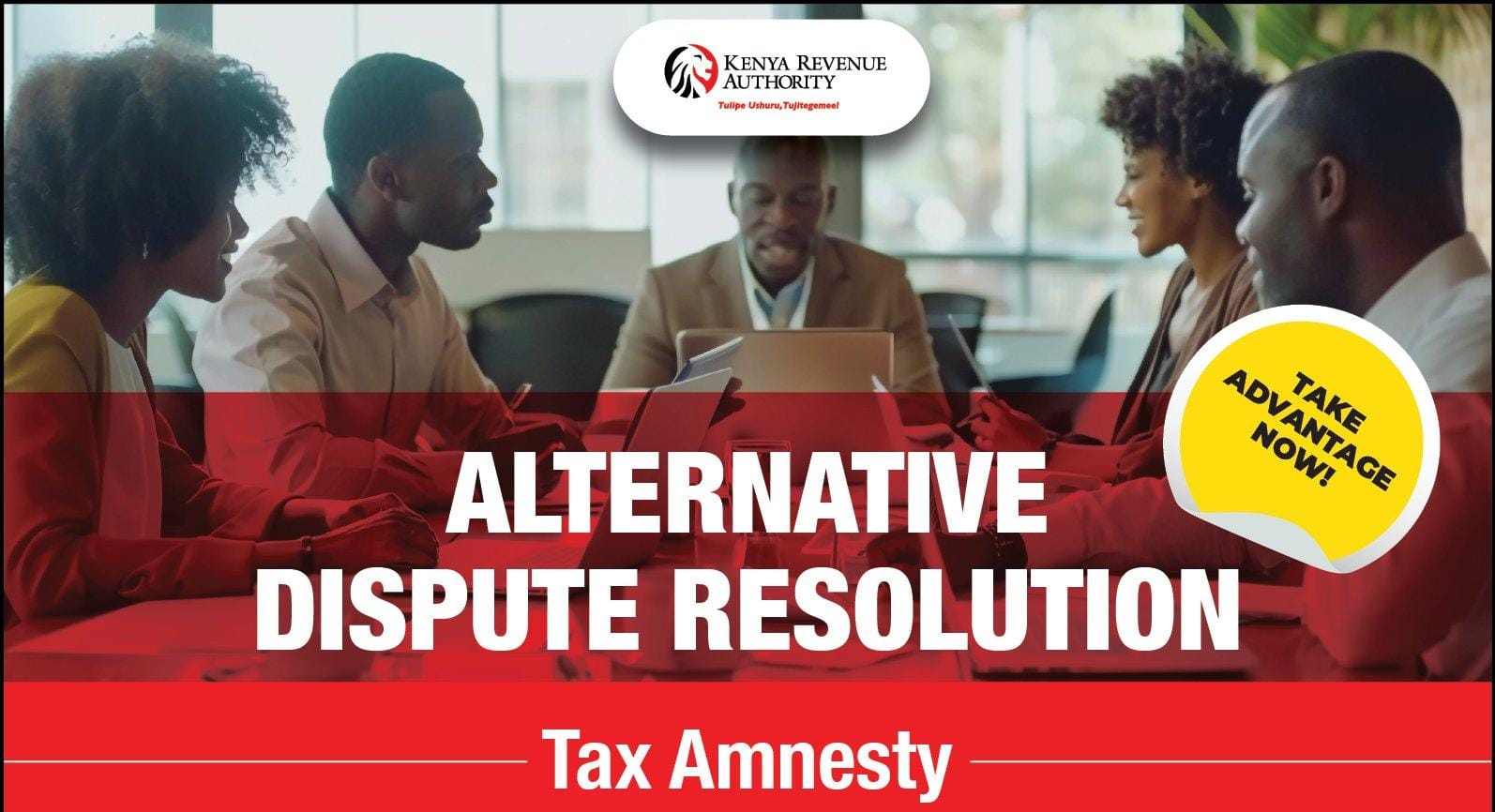 In response to the growing concerns, KRA has encouraged affected taxpayers to consider resolving the disputes through its Alternative Dispute Resolution (ADR)
In response to the growing concerns, KRA has encouraged affected taxpayers to consider resolving the disputes through its Alternative Dispute Resolution (ADR)A wave of confusion and panic has gripped Kenyan taxpayers after the Kenya Revenue Authority began sending mass text messages informing recipients of pending tax debts just days before the June 30 deadline for filing 2024 returns.
Many recipients of the messages claim they are being asked to pay taxes they do not understand or believe they already settled.
The backlash has been swift, particularly from salaried employees who insist their employers already deducted Pay As You Earn (PAYE) taxes.
Beginning mid-June, Kenyans started receiving messages from KRA stating they owed unremitted tax for the year ending December 31, 2023.
The widely circulated message read: "You have principal tax due as of 31.12.2023. Kindly clear by 30.06.2025 for 100% waiver of penalty & interest. Call 0711099999. T&Cs apply."
On Friday, June 27, many reported receiving a follow-up text specifying the alleged amount due.
“Our records indicate that you owe principal tax of Sh5434.35 as at 31/12/2023,” read one message.
“Please settle by 30/06/2025 to enjoy 100% waiver on penalties & interest.”
The flurry of messages sparked confusion and concern, with perplexed citizens flooding social media platform X (formerly Twitter) to question the origin and accuracy of the debt notifications.
Many users wondered if a system error at Times Tower had triggered the mass dispatch of SMS alerts quoting seemingly arbitrary figures.
"How do I owe KRA 59k yet I file returns? Hawa watu wanataka kuniibia," one user exclaimed.
Others expressed disbelief, citing consistent tax compliance and the regular issuance of compliance acknowledgement certificates.
Some Kenyans said they have been jobless for long periods and have faithfully filed nil returns as required.
The figures quoted in the texts left many feeling shocked.
One frustrated user asked: "Regarding principal tax, if my employer deducted income tax from my salary, why then would you ask me to pay for the same, yet it’s the employer’s duty to remit taxes to you?"
An X user claiming to be an accountant offered insight, suggesting the issue could be a reconciliation error.
"A lot of Kenyans have received tax demand letters from KRA despite having filed their returns correctly using P9 forms and paying taxes through PAYE," the post read.
"This is often due to reconciliation issues, where employers remit PAYE in bulk but the payments are not properly matched to individual taxpayer accounts."
To rectify this, the accountant advised affected taxpayers to visit their designated tax manager based on the last three digits of their KRA PIN, carrying stamped and signed P9 forms to aid in reconciling the discrepancies.
Despite the clarification, many Kenyans dismissed the suggestion as burdensome, arguing that they had already fulfilled their obligations and that it was up to KRA to ensure its systems were accurate.
"Why would we file while KRA already has all the records? They should make a system that files the returns itself," one taxpayer remarked.
One individual shared that they had physically visited the KRA headquarters at Times Tower, where a customer care agent attributed the hefty tax figure to incorrect filing and accumulation of penalties and interest over the years.
The tax amount, they were told, had accrued until December 31, 2023.
In response to the growing concerns, KRA has encouraged affected taxpayers to consider resolving the disputes through its Alternative Dispute Resolution (ADR) process.
"Send an email request now for your dispute to be discussed under ADR to [email protected]. The mediation commences and concludes with an ADR settlement agreement," the authority advised.
However, KRA clarified that participating in ADR does not exempt one from paying any principal tax owed or from enjoying the 100 per cent amnesty on penalties and interest.
Amid widespread criticism over its complex digital system and reconciliation mishaps, KRA has announced a significant change: a simplified PAYE return filing and payment process set to roll out on July 1, 2025.
According to the tax authority, the update is based on direct feedback from taxpayers and is designed to improve user experience across public, private, and not-for-profit sectors.
The new system allows employers to file PAYE returns relevant to their employee categories and integrates with systems like the government’s HR information system, IFMIS, and the Central Bank of Kenya through API connections.
This integration will also streamline the filing and payment of other deductions, such as the Affordable Housing Levy, NITA Levy, and labour-related contributions.
KRA has advised employers to begin aligning their payroll processes with the new approach by accessing the simplified Excel PAYE return and sample CSV templates available on its website: www.kra.go.ke/publications.
“KRA appreciates the feedback from taxpayers and will continue to execute industry-specific solutions that support tax compliance,” the notice reads.
With the tax waiver deadline looming at midnight on June 30, uncertainty remains over what lies ahead for those who fail to resolve their tax status in time — and whether the new system will restore public confidence in the taxman's operations.
In a final push to assist taxpayers, KRA announced extended working hours at its service centres this weekend.
"We have extended our working hours this weekend to serve you better to beat the June 30 deadline. Rush to file this weekend, we are open," the authority said.
KRA's tax service offices and contact centres will be open from 9am to 6pm on both Saturday and Sunday.
On Monday, June 30, the final day to qualify for the amnesty, services will run from 7am to midnight to accommodate the last-minute rush.




![[PHOTOS]: Ruto meets security chiefs at State House, Nairobi](/_next/image?url=https%3A%2F%2Fcdn.radioafrica.digital%2Fimage%2F2025%2F06%2Fc4c42fa7-00eb-43a9-81a8-aff44a446021.jpg&w=3840&q=100)





